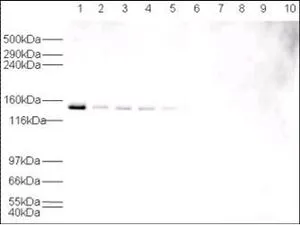
Western blot using GeneTex affinity purified anti-HAUSP antibody (GTX24080) shows detection of HAUSP in various cell lysates at 130 kDa (lane 1 - HeLa nuclear extract, lane 2 - HeLa, Lane 3 - A431, Lane 4 - MCF7, Lane 5 - 3T3). The antibody is blocked by pre-incubation with the immunizing peptide (lanes 6 - 10) using the same lysates. A 1:500 dilution of the primary antibody was used for detection followed by a 1:5,000 dilution of HRP Gt-a-Rabbit IgG. Exposure time was 30 s.
USP7 antibody
GTX24080
ApplicationsWestern Blot, ELISA
Product group Antibodies
ReactivityHuman, Mouse
TargetUSP7
Overview
- SupplierGeneTex
- Product NameUSP7 antibody
- Delivery Days Customer9
- Application Supplier NoteWB: 1:500-1:2000. ELISA: 1:15000-1:60000. *Optimal dilutions/concentrations should be determined by the researcher.Not tested in other applications.
- ApplicationsWestern Blot, ELISA
- CertificationResearch Use Only
- ClonalityPolyclonal
- Concentration1.1 mg/ml
- ConjugateUnconjugated
- Gene ID7874
- Target nameUSP7
- Target descriptionubiquitin specific peptidase 7
- Target synonymsC16DELp13.2, DEL16P13.2, HAFOUS, HAUSP, TEF1, ubiquitin carboxyl-terminal hydrolase 7, Chromosome 16p13.2 deletion syndrome, Herpes virus-associated ubiquitin-specific protease, deubiquitinating enzyme 7, ubiquitin specific peptidase 7 (herpes virus-associated), ubiquitin specific protease 7 (herpes virus-associated), ubiquitin thioesterase 7, ubiquitin-specific-processing protease 7
- HostRabbit
- IsotypeIgG
- Protein IDQ93009
- Protein NameUbiquitin carboxyl-terminal hydrolase 7
- Scientific DescriptionHAUSP is a novel p53 interacting protein identified by mass spectrometry of affinity-purified p53 associated factors by Li et al. HAUSP strongly stabilizes p53 even in the presence of excess MDM2, and also induces p53-dependent cell growth repression and apoptosis. HAUSP has an intrinsic enzymatic activity that specifically de-ubiquitinates p53 both in vivo and in vitro. Expression of a catalytically inactive point mutation of HAUSP in cells increased the levels of p53 ubiquitination and also destabilized p53. Li et al concluded that their findings revealed an important mechanism by which p53 can be stabilized by direct de-ubiquitination and also implied that HAUSP may function as a tumor suppressor in vivo through the stabilization of p53.
- ReactivityHuman, Mouse
- Storage Instruction-20°C or -80°C,2°C to 8°C
- UNSPSC41116161

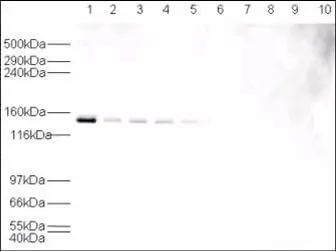
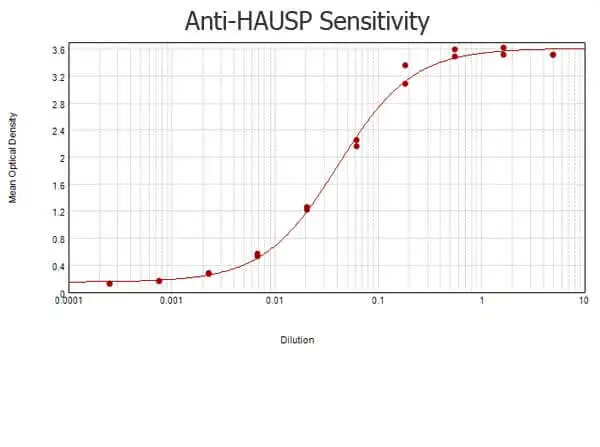
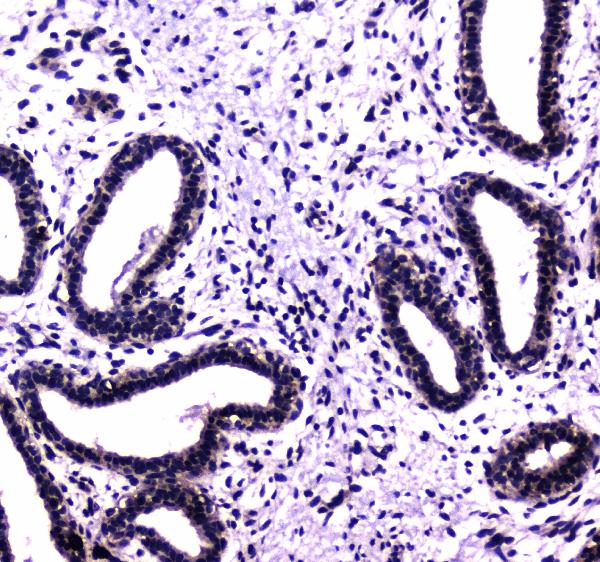

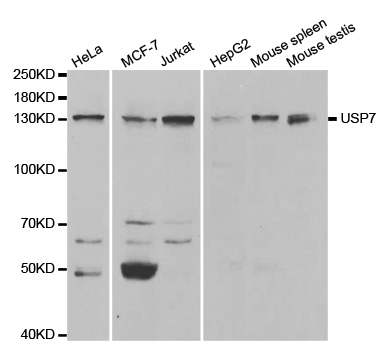


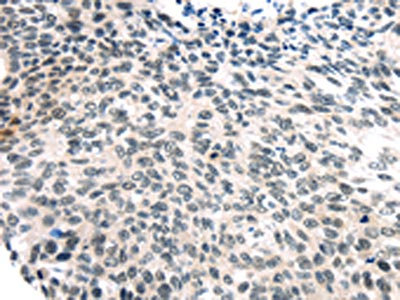
![WB analysis of MCF-7 cell lysate using GTX82802 USP7 antibody [5F11].](https://www.genetex.com/upload/website/prouct_img/normal/GTX82802/GTX82802_20170912_WB_w_23051501_857.webp)